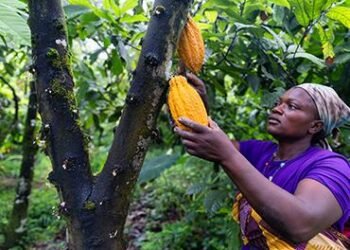Research scientist at the Crop Research Institute (CRI), Dr Blankson Amoabeng, has expressed the need for government to support the mass production of parasitic to fight the invasion of fall armyworm in the country.
According to him, the team at the research institution is committed to bringing out innovation to enable farmers preserve their crops against attacks by such insects. He revealed that the Institute has overtime collaborated with the ministry of food and agriculture to churn out such program.
Dr Amoabeng indicated that following the success in the first stage of lab and field trial on farmers’ fields, there is the need to implement same strategy on other fields across the country.
“The study is complete, the next thing is to expand the rearing of the parasitic to keep multiplying them and release them on the field… So, for this one, we have realized that it is successful after lab and field trials, so now what we intend doing is to keep mass rearing of these parasitic and we will probably give the minister of food and agric to release these parasitic on the farmers’ fields.”
Dr Blankson Amoabeng
Dr Amoabeng noted that due to the difficulty in rearing these “biological agents”, it is difficult to predict whether in the next month or two, the institute will get the numbers they desire. This, he highlighted, is due to the fact that the production is subject to some biological and environmental outcome. As such, the lab can do everything possible to multiply the parasites.
Additionally, the CRI research scientist indicated that “it is very expensive to rear these parasitic” as somebody has to be at the lab almost every time.
“… You can’t just leave them like that. If we get the needed support, maybe from the Planting for Food and Jobs, maybe we can expand our capacity to mass rear these parasitic for release.”
Dr Blankson Amoabeng
Fight against fall armyworm invasion
Commenting on what the breakthrough means in the fight against fall armyworm infestation, Dr Amoabeng stated that it means “a lot to the fight against the invasion of fall armyworm” in Ghana and in Africa. This, he emphasized, implies that very soon, one can incorporate the “biological control means” into the use of synthetic insecticides and ultimately aim to limit the rate of the application of synthetic insecticides towards biological control means.
“As we all know, synthetic insecticides are good, they are able to control the pests within the shortest possible time but they come with so many ecological problems. For example, human poisoning, environmental pollution, contamination of water bodies and elimination of important natural enemies like this parasitic, the bees that pollinate our crops… So, once we are able to incorporate this natural means of managing the pests, then we limit the rate of application of synthetic insecticides.”
Dr Blankson Amoabeng
The CRI research scientist emphasized that the parasitic engagement in the fight against fall armyworm invasion is feasible for expansion as the fall armyworm’s eggs are used produce these parasites. This, he explained, is because, the parasitic completes part of its life cycle in the egg of the fall armyworm.
“So, what it means is that we need to produce the fall armyworm in large numbers so that these fall armyworm can lay more eggs for us to use the parasitic to parasitize them. So, the more we get the fall armyworms eggs, then we can keep increasing the number of the parasitic.”
Dr Blankson Amoabeng
READ ALSO: Debt Is The Most Discussed Item Aside Cedi Depreciation – Prof. Bokpin





















